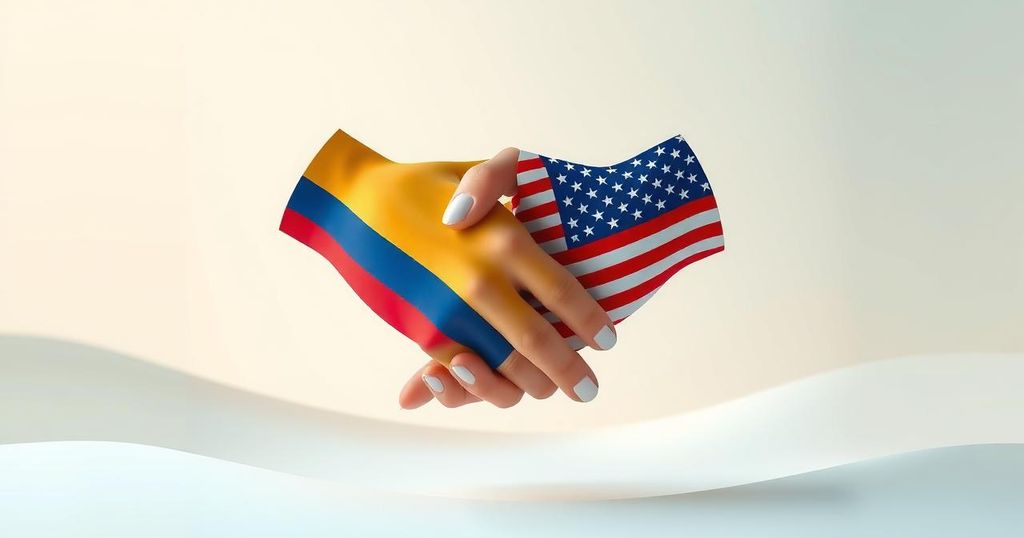Politics
BORDER SECURITY, CHANCELLOR, CHANCELLOR ' S OFFICE, COLOMBIA, COLUMBIA, CUBA, DEMOCRACY, DONALD TRUMP, GOVERNMENT OF THE UNITED STATES, GUSTAVO PETRO, NATIONAL SECURITY, NORTH AMERICA, PEOPLE ' S OFFICE, PM, REGULATIONS, SECURITY, SOUTH AMERICA, TRUMP, UNITED STATES, US, WHITE HOUSE
Nia Simpson
Colombia Reverses Deportation Flight Policy Amid Trump Tariffs
Colombia has shifted its stance and will now accept US deportation flights after President Trump imposed tariffs in response to an initial refusal. President Gustavo Petro affirmed the commitment to ensure dignified treatment for deported nationals and convened a team to oversee this process. Communications with the US government will continue to develop agreements for adequate treatment of returned citizens.
The Colombian government has reversed its stance on the acceptance of deportation flights from the United States after President Donald Trump announced sanctions against Colombia. Initially, Colombia refused to allow US military aircraft carrying deported nationals, prompting the Trump administration to impose retaliatory tariffs. President Gustavo Petro has since committed to ensuring the dignified return of deported Colombians, using the presidential aircraft to facilitate their return.
In a statement issued by the President’s office, Colombia affirmed its dedication to treating returned nationals with dignity, emphasizing a resolution to ensure proper conditions for deported individuals. Additionally, the government has established a specialized team to oversee the treatment of returned Colombians, including the formation of a Unified Command Post to develop protocols respecting human rights.
The Colombian administration has pledged to maintain communication with the US government, aiming to secure agreements that establish minimum standards of respect and dignity during the deportation process. The government reiterated its commitment to protecting its citizens and addressing migration issues both regionally and internationally.
The shift in policy followed Trump’s announcement of a 25% retaliatory tariff on Colombian goods, triggered by Colombia’s refusal to accept US military flights. Tensions escalated when Colombia blocked two flights, prompting Trump to impose sanctions that included travel bans on Colombian citizens and visa revocations for Colombian officials in the US.
In response to Trump’s actions, President Petro conveyed his determination to raise import tariffs on US goods by 25%, expressing disagreement with the treatment of Colombian migrants. The exchange of criticisms between both leaders highlighted the contentious nature of US-Colombia relations regarding migration and deportation practices.
The recent U-turn by the Colombian government illustrates the complex relationship between Colombia and the United States, particularly under the Trump administration. President Trump’s approach included sanctions and tariffs against Colombia in response to their refusal to accept deportees. The escalating diplomatic tensions reflect broader issues regarding how nations handle migration and the treatment of deported individuals. This situation emphasizes the humanitarian concerns involved in deportation and the need for respectful treatment of migrants.
In conclusion, the Colombian government’s decision to accept US deportation flights marks a significant shift influenced by President Trump’s retaliatory measures. The commitment to ensuring dignified treatment for deported nationals highlights the complexities of migration policy and international relations. As both countries navigate these challenges, continued dialogue and respect for human rights will be paramount in addressing the needs of deported individuals and improving diplomatic relations.
Original Source: www.hindustantimes.com








Post Comment